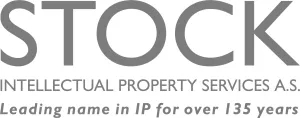The IP Code No. 6769, distinguishes trademark cancellation and invalidation and lists the reasons for termination in three categories: invalidation, cancellation, and others such as expiry of term and non-renewal.
Administrative cancellation is now covered in Article 26 of the IP Code aligning with the EU Directive 2015/2436 and Regulation 2017/1001. TÜRKPATENT will decide on cancellations starting 10 Jan 2024, but courts can still cancel trademarks until that date.
Even though the new procedure is less than a year away, there are many questions requiring answers and clarification.
1. Consequences of Granting Power Solely to TÜRKPATENT
The IP Code provision granting TÜRKPATENT the exclusive power to cancel trademarks goes against the EU Directive, which states that Member States shall provide an efficient administrative procedure for the revocation or declaration of invalidity of trademarks and that the administrative cancellation power of offices does not abolish the cancellation power of the courts.
This mismatch in regulations may lead to negative consequences, such as deprivation of rights granted by decisions with retroactive effect and elimination of the right to request the cancellation of a trademark before the court, which is considered as contrary to the right to a fair trial as outlined in the Constitution.
Currently, a plaintiff may file a lawsuit to prevent and stop the infringement and invalidate the trademark. The defendant may file a counterclaim of non-use and request the cancellation of the plaintiff's trademark. However, when the IP Code takes effect, the right to file a counter-action will be eliminated, potentially depriving the defendant of the ability to exercise the rights of the "counter-claimant".
This regulation may also be seen as violating the constitutional right to a fair trial. Article 36 of the Constitution states everyone has the right to a fair trial as a plaintiff or defendant. The regulation in Article 26/1 may be viewed as limiting this right by eliminating the option to request a cancellation before the court. This may result in a challenge to the Supreme Court to annul TÜRKPATENT's exclusive authority to decide on trademark cancellations.
2. Issues related to the Procedure
- Issue of whether the Procedural Process carried out by TURKPATENT is Sufficient
The IP Code outlines the procedure for cancellation requests and the trademark owner's right to respond within a month (with possible extension). Regulation (EU) No. 2017/1001 provides more flexibility, but the IP Code restricts the exchange of pleas and may limit the right to reply.
There are uncertainties regarding TÜRKPATENT's handling responses after deadlines, evaluate evidence, or implement the "prohibition of expanding the case", which are likely to be resolved through secondary legislation.
- Withdrawing a Cancellation Request
TÜRKPATENT's acceptance of a withdrawal of a cancellation request is unclear. Since the purpose of the provisions that order the use of a trademark is to prevent trademarks from occupying space in the register and thus reduce the number of disputes arising due to registered trademarks, the issuance of these decisions also serves the public interest. Accordingly, a secondary regulation may stipulate that the withdrawal of cancellation requests will not be allowed.
- Finalization Date
The finalization date of a cancellation decision by TÜRKPATENT is uncertain. A cancellation decision may be deemed final after two months if no lawsuit is filed, or after a lawsuit challenging TÜRKPATENT's decision is finalized. Due to the length of a lawsuit process, the purpose of accelerating cancellation process through administrative proceedings may be jeopardized.
- Decision of Cancellation as a Preliminary Issue
TÜRKPATENT's consideration of cancellation as a preliminary issue and suspension of simultaneous processes is unclear. Therefore, there is also a need to clarify in which decisions and processes TÜRKPATENT will implement the suspension mechanism.
- Objections on grounds of another action pending
It is not possible in the current practice for TÜRKPATENT to be aware of cancellation actions currently pending before courts. Therefore, it is considered to be beneficial to establish a structure enabling this issue to be asserted as a defence through secondary legislation.
- Necessity of a Regulation on Res Judicata Defence
It is possible to make an unlimited number of cancellation requests. However, in terms of the settled matter principle, at least for trademarks the parties of which are the same as well as the ground for cancellation, there are opinions that see a regulation preventing multiple cancellation requests from being taken again at least for a certain period of time beneficial. In this context, it is evaluated as appropriate to adopt the res judicata principle adopted by EUIPO in Türkiye, as well.
3. Uncertainties in Corporate Organization>
It is not yet clear which department of TÜRKPATENT will handle administrative cancellation requests. Three possibilities are being discussed: (1) requests are first handled by the Trademarks Department, with the Board of Re-Examination ("the Board") making final decisions on appeals; (2) a new department is established, with the Board handling appeals; or (3) a single review by the Board. In our opinion, considering the significant experience of the Office in the proof of use processes in recent years, the first scenario would be the most efficient way to implement.
4. Issues on Merits of Cases
- Ambiguities in Refiling
Re-filings can be considered as bad faith in non-use cancellation actions in recent practice, but there is no regulation on this matter, and further clarification is needed.
- Ambiguities in Examination:
If a trademark is registered for a subclass of goods within a Nice class but used only on a specific good in that subclass, the question arises on what will happen if use is proven for only that specific good. The framework for examination in this respect needs to be defined.
In conclusion, the upcoming changes in administrative and procedural matters will have a significant impact in the industry. With TÜRKPATENT set to take over in less than a year, it is crucial that necessary additional regulations are put in place promptly to prevent any potential issues in practice.
The content of this article is intended to provide a general guide to the subject matter. Specialist advice should be sought about your specific circumstances.

